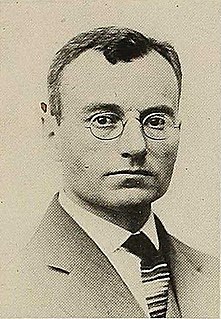A Quote by Mao Zedong
The ruthless economic exploitation and political oppression of the peasants by the landlord class forced them into numerous uprisings against its rule.... It was the class struggles of the peasants, the peasant uprisings and peasant wars that constituted the real motive force of historical development in Chinese feudal society.
Related Quotes
I was being brought up on peasant stories; my mother came from Europe and she'd been a peasant and that was the area where the Frankensteins and the Draculas came from and it was entertainment for the people. Nobody had TV, and that was the way peasants would entertain themselves, by telling these stories.
And it is clear that in the colonial countries the peasants alone are revolutionary, for they have nothing to lose and everything to gain. The starving peasant, outside the class system is the first among the exploited to discover that only violence pays. For him there is no compromise, no possible coming to terms; colonization and decolonization a simply a question of relative strength.
The economic class struggle is a struggle against inessanlty intensified exploitation: not only against the brutal material form of exploitation, capitalism's tendency to reduce wages, and against the class 'techniques' for increasing productivity... but also around the question of the technical-social division of labor that prevails om enterprises, and against bourgeois ideology and repression.
There are several studies done of peasant uprisings where the first chapter might be 'conditions in that area' and so the conditions are bad, and then the second chapter is a kind of conjectural event, somebody's shot and then there's an uprising. But there's no consideration, no chapter on preparation.
The great goal of the backlash is to nurture a cultural class war, and the first step in doing so, as we have seen, is to deny the economic basis of social class. After all, you can hardly deride liberals as society's "elite" or present the GOP as the party of the common man if you acknowledge the existence of the corporate world - the power that creates the nation's real elite, that dominates its real class system, and that wields the Republican Party as its personal political sidearm.
The people's community must not be a mere phrase, but a revolutionary achievement following from the radical carrying out of the basic life needs of the working class. A ruthless battle against corruption! A war against exploitation, freedom for the workers! The elimination of all economic-capitalist influences on national policy...Maintaining a rotten economic system has nothing to do with nationalism, which is an affirmation of the Fatherland. I can love Germany and hate capitalism. Not only can I, I must.
By destroying the peasant economy and driving the peasant from the country to the town, the famine creates a proletariat... Furthermore the famine can and should be a progressive factor not only economically. It will force the peasant to reflect on the bases of the capitalist system, demolish faith in the tsar and tsarism, and consequently in due course make the victory of the revolution easier... Psychologically all this talk about feeding the starving and so on essentially reflects the usual sugary sentimentality of our intelligentsia.
If my relation to each and every peasant in Cambodia is indeed exactly what the principles of morality would demand it to be, it's a miraculous coincidence, because it takes a lot of effort to behave correctly in regard to my friends, and from one end of the year to another I never give those peasants a single thought.






































